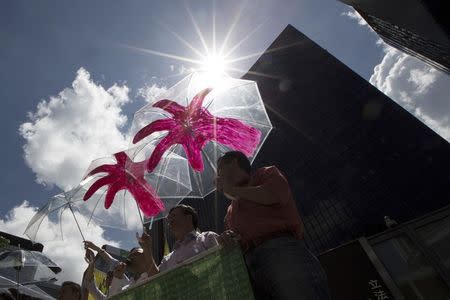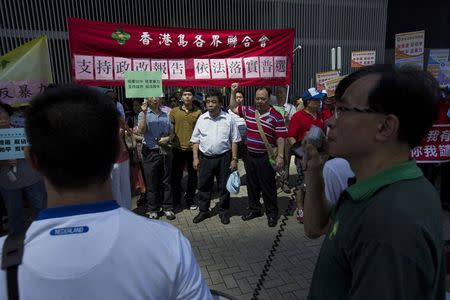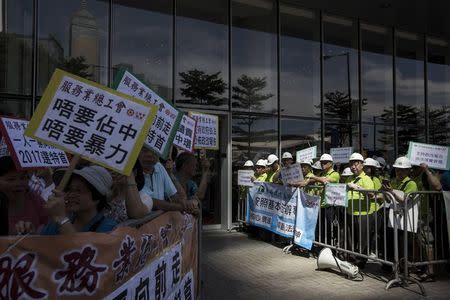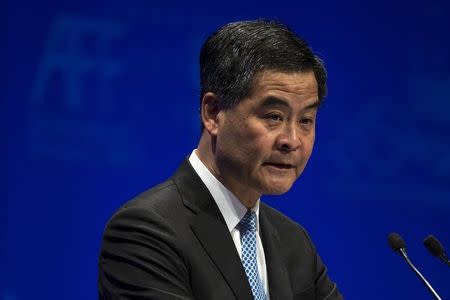Hong Kong leader tells Beijing electoral reforms needed before 2017
By Greg Torode HONG KONG (Reuters) - Hong Kong's leader formally asked Beijing on Tuesday to allow electoral reform, paving the way for a city-wide leadership election in the free-wheeling Asian financial hub in 2017. The devil remains in the details, however, with Chief Executive Leung Chun-ying offering no firm proposal and the city's democrats fearing they will be shut out of the poll once Beijing's Communist Party leadership approves an election plan. Leung's report to the standing committee of the National People's Congress, China's parliament, followed a five-month consultation on democracy in the former British colony that drew nearly 125,000 public submissions. Hong Kong returned to China in 1997 with wide-ranging autonomy under the formula of "one country, two systems". "Implementing universal suffrage for the Chief Executive's election will be an important milestone of the democratic development of Hong Kong's political system, with significant real impact and historic meaning," the report said. It also appeared to reflect a key concern of Beijing's leadership, saying Hong Kong people believed their next leader needed to be "a person who loves the country and loves Hong Kong". The report marks one of the most significant steps yet in Hong Kong's political journey - an experiment with democracy in communist-controlled China. It comes amid a hot political summer in Hong Kong, where hundreds of thousands marched to demand full democracy on July 1 and more than 800,000 voted in an unofficial referendum in June of possible election models. A campaign of choreographed civil disobedience threatens to paralyze Hong Kong's glitzy Central financial district unless Beijing's allows full democracy. The intensifying debate is split between Beijing officials and their local supporters, who are insisting upon a special committee to select candidates, and democratic activists who want open nominations. Leung's report said "mainstream opinion" was that the Basic Law - Hong Kong's mini-constitution drawn up by China and Britain - had already made clear the power to nominate must remain with the committee. The standing committee of the National People's Congress is due to rule on the need for reform in August after which Hong Kong people will be asked to comment on a range of options. Hong Kong's legislature must then vote in any changes. (Additional reporting by Anne Marie Roantree; Clare Baldwin and Yimou Lee; Editing by Nick Macfie)





